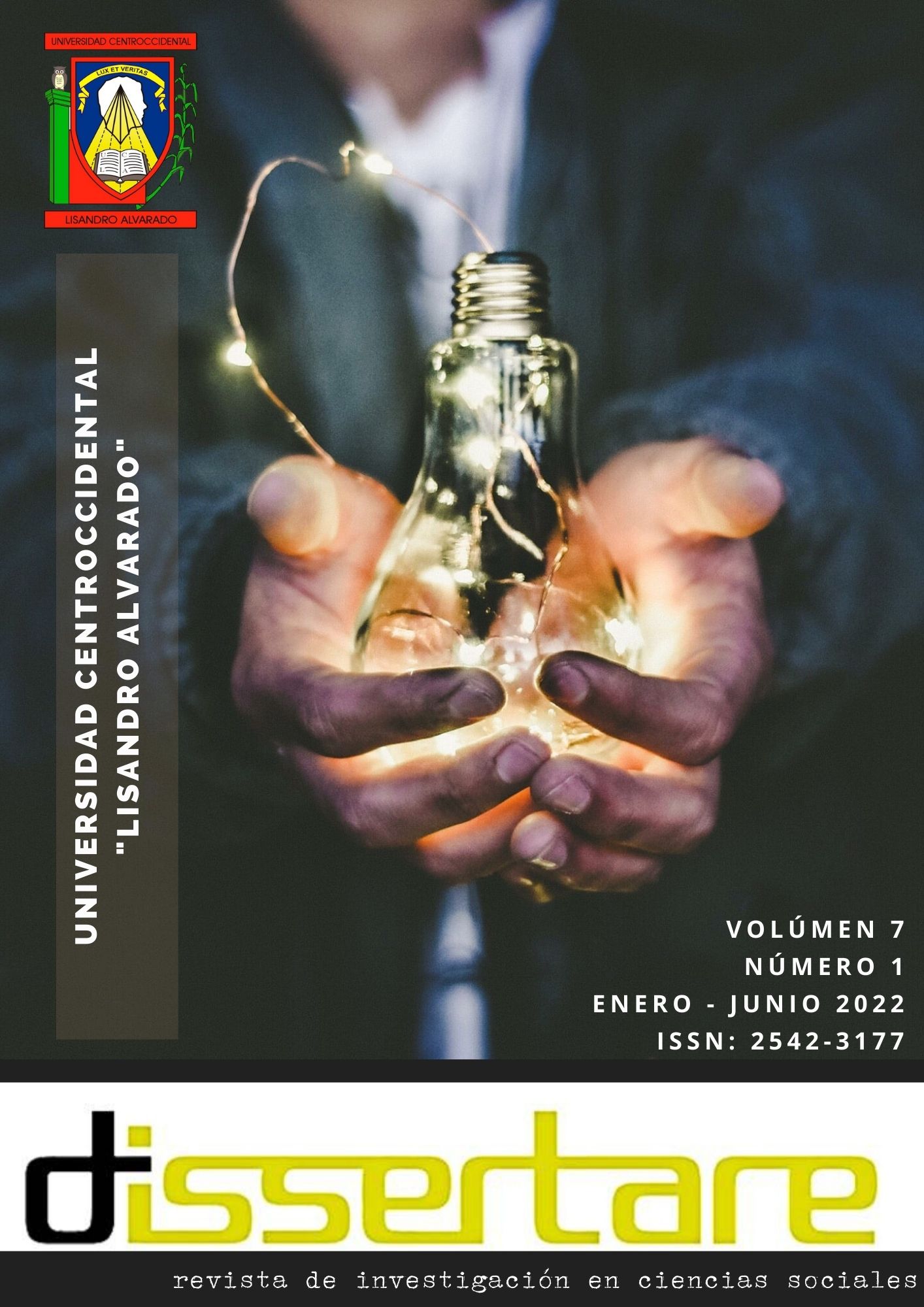Scientific Paradigms: A Review in the Context of Sustainability
DOI:
https://doi.org/10.5281/zenodo.7272778Keywords:
sustainability, scientific paradigm, definition, paradigmatic structureAbstract
In 2020, the highest global temperature and the highest concentration of carbon dioxide (CO2) in our atmosphere for more than 3 million years are recorded. The World Bank (2021) confirms that climate change is advancing and its relationship with human well-being is evident. However, it affirms that countries can still follow a sustainable, strong and inclusive path with a flexible economy. Given the seriousness of this situation, scientific knowledge should contribute to the achievement of sustainable societies, which implies rethinking science and its methods. Faced with these challenges, it is worth asking: Is there a scientific paradigm that responds to the proposals of sustainability? What requirements should a paradigm meet with this approach? This work aims to propose a theoretical and operational definition applicable to the concept of paradigm from a scientific standpoint, within the framework of sustainability. To that purpose, the state of the art is carried out on the descriptions and the structures or dimensions of the paradigms. The work is of a qualitative nature, with documentary design, supported by the use of bibliographic review techniques. The analyzed sources are selected through an intentional non-probabilistic sampling. It is concluded that the definition and paradigmatic structure proposed allows evaluating scientific statements with respect to the status of paradigms, in addition to offering a framework for validating research results, guaranteeing that the methods applied and the solutions proposed contribute to the sustainability of the environment for current and future generations.
Downloads
References
Banco Mundial (23 de marzo de 2021). Cambio Climático. https://www.bancomundial.org/es/topic/climatechange/overview#2
Casas, A., Torres, I., Delgado-Lemus, A., Rangel-Landa, S., Ilsley, C., Torres-Guevara, J., Cruz, A., Parra, F., Moreno-Calles, A. I., Camou, A., Castillo, A., Ayala-Orozo, B., Blancas, J. J., Vallejo, M., Solís, L., Bullen, A., Ortiz, T. y Farfán, B. (2017). Ciencia para la sustentabilidad: investigación, educación y procesos participativos. Revista Mexicana de Biodiversidad, (88), 113-128. https://doi.org/10.1016/j.rmb.2017.10.003
Comisión Europea (s.f.). Causas del cambio climático. Climate Action. https://ec.europa.eu/clima/change/causes_es
Dos Santos-Reigota, M. (2006). Ciencia y sustentabilidad. Contribución de la investigación en educación ambiental en Brasil. Trayectorias, VIII(20-21), 89-99. https://www.redalyc.org/pdf/607/60715248009.pdf
Endrizzi, D. (2020). Las dimensiones de la calidad democrática: un análisis metodológico de la propuesta de Leonardo Morlino. En: O. A. Agudelo Giraldo (Ed.), Derechos humanos, democracia y poder judicial (pp. 57-73). Editorial Universidad Católica de Colombia. https://doi.org/10.14718/9789585133020.2020.3
Figueredo Hernández, J. A. y Jiménez Guethón (2021). El paradigma de la sostenibilidad: alcances y limitaciones. Controversias y Concurrencias Latinoamericanas, 12(22), 205-217. https://ojs.sociologia-alas.org/index.php/CyC/article/view/250/258
Frías Viejo, P. (2021). La contaminación atmosférica como factor determinante en la salud humana. Madrid: Universidad de Alcalá. Obtenido de http://hdl.handle.net/10017/49527
Gómez, M. (2006). Introducción a la metodología de la investigación científica. Editorial Brujas. https://www.academia.edu/11232932/Introducci%C3%B3n_a_la_Metodolog%C3%ADa_de_la_Investigaci%C3%B3n_Cient%C3%ADfica_Autor_Prof_Marcelo_G%C3%B3mez_1_
González, F. (2005). ¿Qué es un paradigma? Análisis teórico, conceptual y psicolingüístico del término. Investigación y Postgrado, 20(01), 13-54. http://ve.scielo.org/scielo.php?script=sci_arttext&pid=S1316-00872005000100002
Guba, E., y Lincoln, Y. S. (2002). Paradigmas en competencia en la investigación cualitativa. En: C. Denman, y J.J. Haro, Por los rincones. Antología de métodos cualitativos en la investigación social (pp. 113-145). Editorial El Colegio de Sonora. http://www.ustatunja.edu.co/cong/images/curso/guba_y_lincoln_2002.pdf
Hurtado, J. (2010). Metodología de la Investigación. Quiron Ediciones.
Intergovernmental Panel on Climate Change (2022). Climate change 2022. Impacts, adaptation and vulnerability. https://mercociudades.org/descarga/sexto-informe-de-evaluacion-del-ipcc-cambio-climatico-2022-ingles/
Kuhn, T. (1962). The structure of scientific revolutions. International Encyclopedia of Unified Science. https://www.lri.fr/~mbl/Stanford/CS477/papers/Kuhn-SSR-2ndEd.pdf
Masterman, M. (1975). The nature of a paradigm. En I. Lakatos, y A. Musgrave, Criticism and the growth of knowledge (pp. 59-89). Cambridge University Press. https://idoc.pub/download/margaret-masterman-the-nature-of-a-paradigm-6ngee957ojlv
Montero, M. (2004). Introducción a la psicología comunitaria. Desarrollo, conceptos y procesos. Editorial Paidós Tramas Sociales. https://catedralibremartinbaro.org/pdfs/libro-montero-introduccion-a-la-psicologia-comunitaria.pdf
Naciones Unidas (1987). Informe de la Comisión Mundial sobre el Medio Ambiente y el Desarrollo. Asamblea General. https://www.ecominga.uqam.ca/PDF/BIBLIOGRAPHIE/GUIDE_LECTURE_1/CMMAD-Informe-Comision-Brundtland-sobre-Medio-Ambiente-Desarrollo.pdf
Naciones Unidas (14 de enero de 2021). Una muestra más del avance del cambio climático: 2020 fue el tercer año más caliente registrado. https://news.un.org/es/story/2021/01/1486552
Nassi-Caló, L. (16 de octubre de 2015). La Ciencia de la Sustentabilidad en el panorama global. Scielo en Perspectiva. https://blog.scielo.org/es/2015/10/16/la-ciencia-de-la-sustentabilidad-en-el-panorama-global/
Picasso, F. y de Gracia, D. (2021). Revisión, crítica e innovación en las clasificaciones de paradigmas en ciencias sociales. Revista Latinoamericana de Metodología de la Investigación Social, 11(21), 7-22. http://relmis.com.ar/ojs/index.php/relmis/article/view/revision_critica_e_innovacion/183
Real Academia Española (2021). Diccionario de la lengua española. Obtenido de https://dle.rae.es/
Sánchez Gamboa, S. (1998). Fundamentos para la investigación educativa. Presupuestos epistemológicos que orientan al investigador. Editorial Magisterio.
Scimago Institutions Rankings (Abril de 2020). Scimago Journal & Country Rank. https://www.scimagojr.com/countryrank.php?category=2311&area=2300&year=2020
Toledo, V. (2019). ¿De qué hablamos cuando hablamos de sustentabilidad? Revista Internacional de Salarios Dignos, 1(2). https://revistasinvestigacion.lasalle.mx/index.php/OISAD/article/view/2554/2534
Published
How to Cite
Issue
Section
Copyright (c) 2022 Dra. Nigme Cadenas, Dra. Fraisa Codecido

This work is licensed under a Creative Commons Attribution-NonCommercial-ShareAlike 4.0 International License.
Derechos del/de autor/es a partir del año de publicación
Esta obra está bajo la licencia:
Creative Commons Reconocimiento-NoComercial-CompartirIgual 4.0 Internacional (CC BY-NC-SA 4.0)
Las opiniones expresadas por los autores no necesariamente reflejan la postura del editor de la publicación ni de la UCLA. Se autoriza la reproducción total o parcial de los textos aquí publicados, siempre y cuando se cite la fuente completa y la dirección electrónica de esta revista. Los autores(as) tienen el derecho de utilizar sus artículos para cualquier propósito siempre y cuando se realice sin fines de lucro. Los autores(as) pueden publicar en internet o cualquier otro medio la versión final aprobada de su trabajo, luego que esta ha sido publicada en esta revista.





